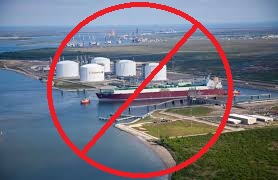Media Silent as Native Americans Successfully Halt Construction on Oil Pipeline
August 22, 2016NYS Model Solar Energy Law
August 26, 2016Since 2008, Damascus Citizens for Sustainability has been among the leaders in the fight against fracking, often working behind the scenes to achieve tangible results. For example, in 2012 DCS proposed a ban on frack waste in New York City and has been working on this issue ever since. And now a ban on the use or disposal of frack waste in NYC has been passed. It may have taken 4 years and a lot of time and effort, but it was worth it to protect the health of New Yorkers. We are in this for the long haul.
Often, we are so busy on so many fronts that we don’t take the time to let people know what we are up to. However, now that the SAB’s report on the EPA Fracking Study (official title: Assessment of the Potential Impacts of Hydraulic Fracturing for Oil and Gas on Drinking Water Resources) is out, it’s a good time to let people know what we have done on this issue.
Below are just a few of the hundreds of comments and submissions DCS has made on the EPA Fracking Study. Interestingly, the first 2 recommendations by the SAB directly correspond to some of DCS’s most important and powerful comments.
Note: The Science Advisory Board (SAB) is charged with recommending changes to the EPA Fracking Study. The Research Advisory Panel is charged with reviewing the Study and reporting to the SAB.
From DCS comments to the EPA on the EPA Fracking Study:
“Frankly, the statement that EPA did not find evidence of widespread systemic impacts on drinking water resources is inconsistent with the findings on each of the research questions as discussed above in Section 10.3 of the study….The scope of this study is whether hydraulic fracturing has had or may have impacts of drinking water sources. The answer is clearly “Yes,” as discussed in the study chapters on water acquisition, chemical mixing, well injection, flowback and produced waters, wastewater treatment, and waste disposal.”
From DCS comments to the Research Advisory Panel on the EPA Fracking Study:
“In the current draft report, EPA is attempting once again to ignore the science and their own data. This SAB panel has the chance to speak clearly about the science and be true to their ethical and moral obligations to act on truth and not political lobbying wishes. The removal of Dimock PA, Pavillion WY and Parker County TX from the report is also a parallel to the 2004 report that should not be repeated.”
From DCS comments to the Research Advisory Panel on the EPA Fracking Study:
“For example, this includes state information finding contamination of water supply wells in proximity to oil or gas wells. The Pennsylvania DEP has issued hundreds of “positive determination letters” finding that oil or gas wells have contaminated drinking water resources. In the draft assessment report EPA acknowledges the existence of these letters but then states that EPA did not investigate or review these cases any further. Why not? Isn’t this what this whole study is about?”
From DCS comments to the SAB on the Research Advisory Panel report:
“My fifth and final comment is that, we agree with the Advisory Panel that the EPA conclusion in its draft assessment report about widespread systemic impacts on drinking water cannot stand. Moreover, quite to the contrary we believe that widespread systemic impacts on drinking water sources have been demonstrated by the overwhelming body of scientific information reported in the peer-reviewed literature on this subject.”
From DCS comments to the SAB on the Research Advisory Panel report:
“We strongly support the SAB panel’s recommendations to remove the unsubstantiated ‘no widespread…’ statement as not related to data and totally undefined. The necessity to clearly link statements to evidence provided in the body of the final Assessment Report is indicative of the difference between a scientific analysis of data and a propaganda statement.”
Introduction to Submissions by DCS to the EPA Team Conducting the Study of the Impacts of Hydraulic Fracturing on Drinking Water Resources:
Since 2013, DCS has submitted hundreds of documents and comments regarding the EPA Fracking Study. We are gratified that 2 of our major points have become SAB recommendations.
The EPA has not yet finalized its Study and we will keep the pressure on until they do. The fight for clean water, air and land is on-going, and we will be there. We are able to do this due to the support of like-minded citizens.



